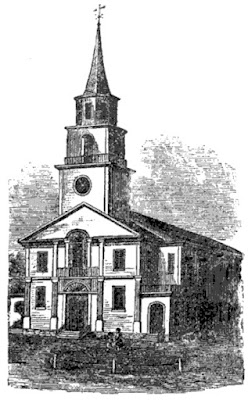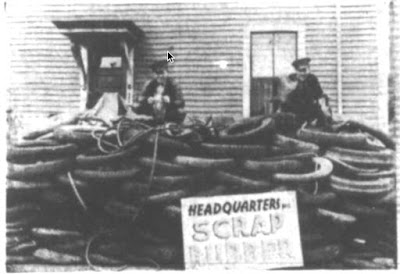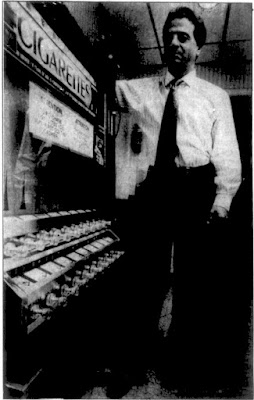 |
June 12, 2016
|
June 11, 1806 - Second meeting house dedicated
June 16, 1942 - WWII scrap rubber drive
June 12, 1990 - Brookline restricts cigarette machines
June 12, 2016 - Roland Hayes plaque
June 11, 1806
Second meeting house dedicated
Rev. John Pierce, minister since 1797 of what was then Brookline's only house of worship, dedicated a new meeting house for the church. The new building replaced the original 1717 structure. It stood on Walnut Street where the fourth building of the congregation (First Parish) is today.
"By solemn prayer and praise we now dedicate this temple to the service of him, who can make it the instrument of essential benefit to ourselves, and even to our children's children," said Pierce. The building, according to notes in a published version of Pierce's speech, cost just over $20,000 to build. It was designed by Peter Banner who would, a few years later, design the Park Street Church in Boston, still standing today.

The 1806 Brookline building would be replaced by a new church across Walnut Street in 1848. John Pierce died one year later after 52 years as minister at First Parish.
June 16, 1942
WWII scrap rubber drive
Brookline launched a two-week scrap rubber drive, part of a nationwide effort to make up for a shortage of this vital material used in everything from tanks and airplanes to rafts and rubber boats to the soles of soldiers' shoes.
Old tires were considered the best and largest source of rubber, but residents were also urged to contribute a wide variety of rubber products, large and small. A long list provided in the Brookline Citizen included garden hoses, boots and overshoes, rubber toys, tobacco pouches, bathing caps, bridge table coverings, suction cups, rubber floor tiles, and "any of the hundred and one items containing rubber."
 |
| Two young employees of the Brookline Hills Service Station at the corner of Boylston and Cypress Streets are shown with tires and other items collected as part of the rubber drive |
Local gas stations, designated as drop-off points for the material, were soon overwhelmed with the amount of rubber collected.
June 12, 1990
Brookline restricts cigarette machines
Town Meeting voted overwhelmingly in favor of banning cigarette vending machines in town. Exceptions were made for private clubs with liquor licenses and workplaces that were not accessible to minors or the general public.
The bylaw was struck down that fall by the Massachusetts Attorney General who ruled that only the state had the authority to regulate vending machines. It was reinstated by the town as a public health measure, rather than a licensing issue, but continued to face challenges from the vending machine industry and others.
One option introduced by the industry was an electronic lock-out device that could only be overridden if a vendor verified that the purchaser was not a minor. Town officials conducted a sting operation that showed this was often not enforced. Cigarette vending machines were finally banned nationally, with the exception of adult-only facilities, in 2010.
 |
| A salesperson demonstrates a cigarette vending machine with a lock-down device in this 1991 Brookline Citizen photo |
June 12, 2016
Roland Hayes plaque
A plaque honoring the groundbreaking African American tenor Roland Hayes was dedicated in front of the Allerton Street house where he lived for more than 50 years. Hayes (1887-1977), the first African American soloist to perform with the Boston Symphony Orchestra, had a long career and helped blaze a path for other Black singers like Paul Robeson and Marian Anderson.
 |
| Roland Hayes plaque on Allerton Street |
Hayes, born in Georgia on a farm where his mother had once been enslaved, received a music education at Fisk University in Nashville and in Boston. He was known for incorporating old spirituals in his performances, along with classical works.
The Hayes family, including his wife Alzada and their daughter Afrika, moved to Brookline in 1925 when they purchased the Allerton Street house. (See also this 2015 tribute to Hayes, recorded by Brookline Interactive Group.)





No comments:
Post a Comment